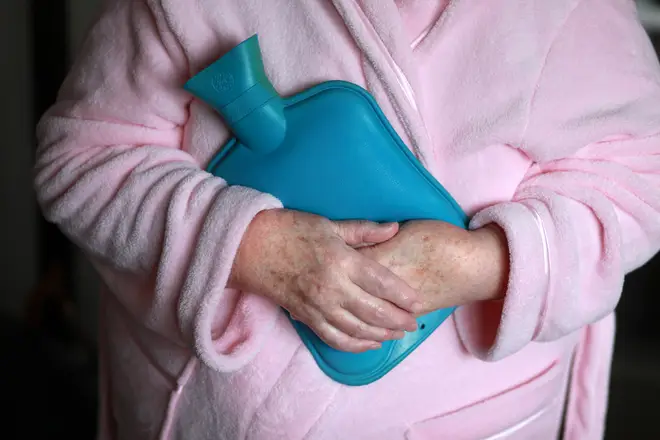
Oli Dugmore 4am - 7am
1 October 2021, 00:02 | Updated: 1 October 2021, 00:12

One in five households could find themselves in fuel poverty as the energy price cap comes into effect, according to a new fuel poverty map.
The news comes during a worsening gas crisis, with an energy price cap increase set to drive up household costs by £139-153.
Campaigners say the surge in prices – another of which is expected next year – could lead to fuel poverty becoming "endemic" in the UK.
"The latest rises in wholesale prices means that we face the possibility of more households facing fuel poverty than ever before," said Simon Francis, co-ordinator of the End Fuel Poverty Coalition.
Read more: Three more energy suppliers collapse amid soaring gas prices
Read more: Gas prices: What happens if my energy supplier goes bust?
"And with fuel poverty comes increased risks of suffering the worst effects of respiratory illnesses, such as Covid-19.
"Indeed, when combined with the increase in general prices caused by inflation and Brexit supply issues we face the real possibility of fuel poverty becoming endemic in our society."

Business Sec says the UK gas supply is secure
The price cap increase comes into effect on October 1.
The latest calculations have revealed that the number of households in the country in fuel poverty could rise from 4.1m to 5.3m – meaning 22 per cent of households in England would be classed as being in fuel poverty.
Read more: 'Desperate choices' for Brits as monthly energy bills could soar by £30
Read more: Gas price crisis: Taxpayers 'face multibillion pound bill' bailing out energy firms
Peter Smith, Director of Policy and Advocacy at National Energy Action, said this winter could bring a "toxic cocktail of challenges" that dealing with would be, for many, an "impossible task".
"We need immediate support for those on lowest incomes, we need to clear levels of household energy debt fast, we need to give more protection to the fuel poor from future price rises and we need to reduce people's exposure to high prices by making homes more efficient," said Mr Smith.

Martin Lewis issues stark energy warning
There are large variations in fuel poverty across the UK.
The worst place in England for fuel poverty is Barking & Dagenham, followed by Stoke-on-Trent and Newham.
But it’s not just inner city areas which are badly ranked in the map with Shropshire, Herefordshire and King’s Lynn and West Norfolk all struggling with fuel poverty.
Meanwhile Bracknell Forest, Runnymede and East Hampshire are among the areas least affected by fuel poverty.
Read more: Over a million homes face higher bills as gas prices force more energy firms to go bust
Read more: Martin Lewis' stark warning on 'outrageous' gas price rise
Caroline Abrahams, Charity Director at Age UK, said the research revealed the "stark inequalities" in rates of fuel poverty, noting that many northern areas were particularly affected.
"The problem is that too many older people are living in energy inefficient cold homes, guaranteeing that they will be facing sky high bills," said Ms Abrahams.
"Keeping warm through the winter is an annual challenge for older people on low fixed incomes."
She said it was "vital" for older people to keep warm in winter to avoid exacerbating pre-existing health conditions and putting more pressure on the NHS.
"The Government must provide support for households who are struggling the most," she added.
"Longer term, we need to see greater investment in energy efficiency programmes, which will help lower bills, reduce anxiety for those in cold homes and protect people against any future surges in fuel costs."